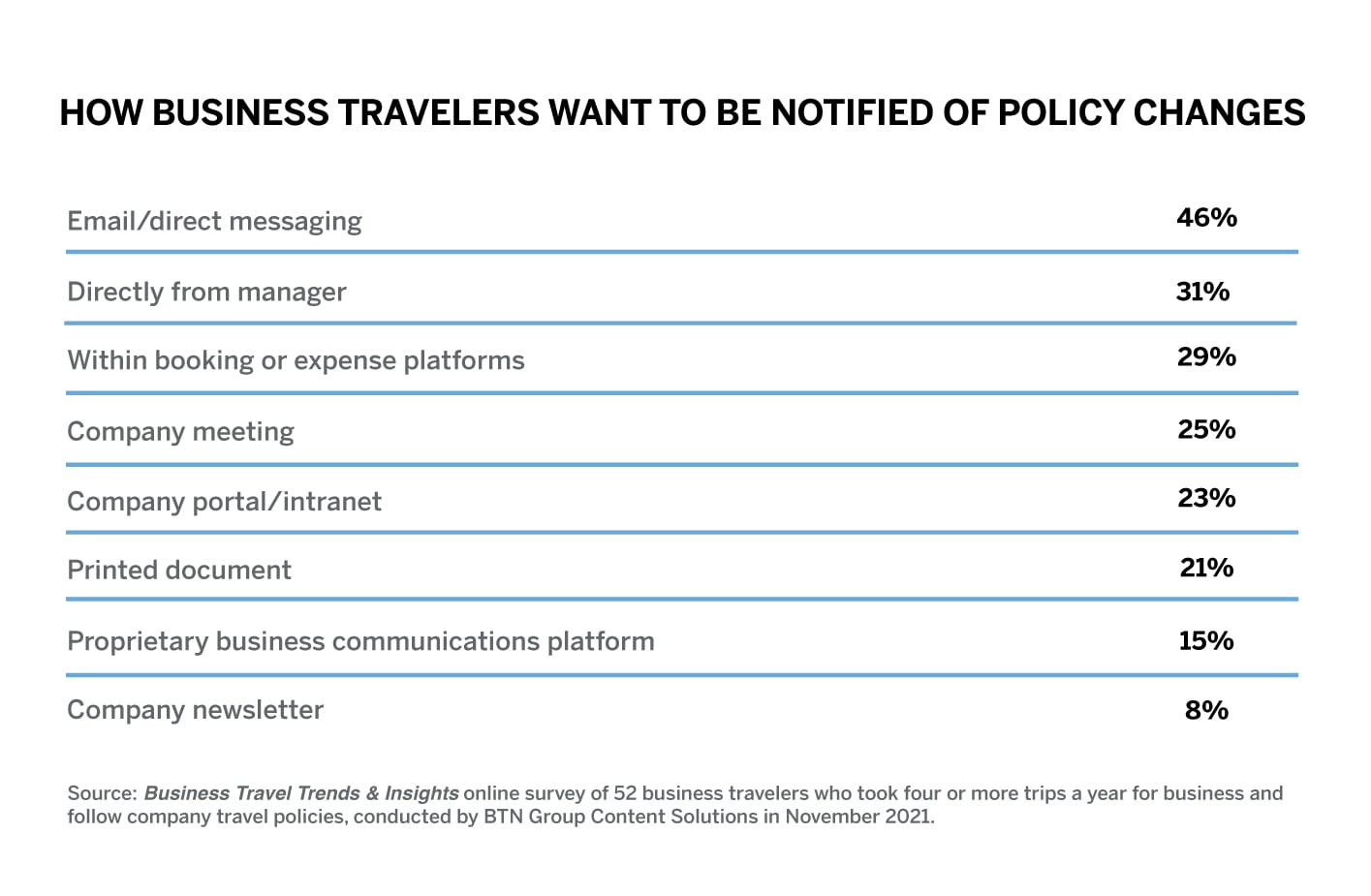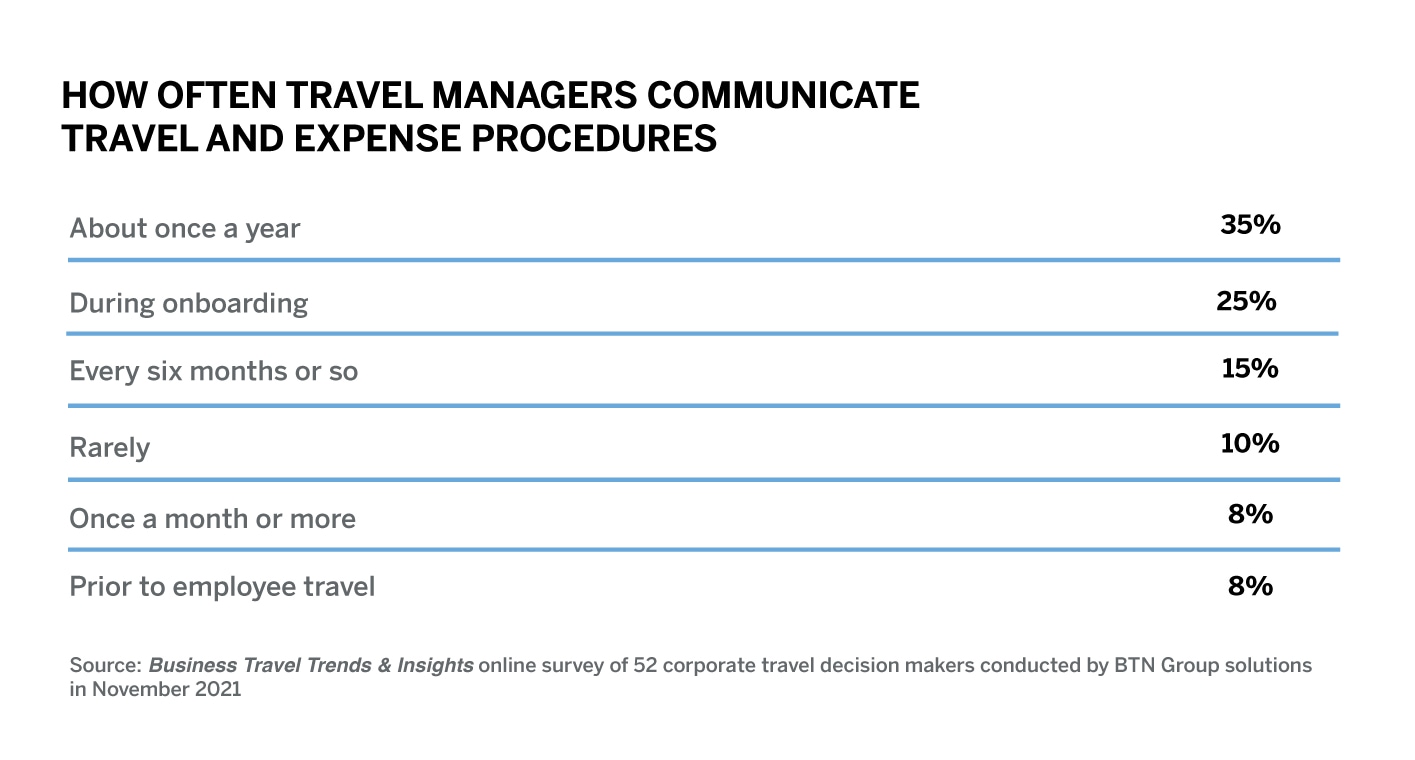It’s no news that non-compliance to travel and expense policies can be high, especially for companies with less oversight. Rarely is compliance to travel and expense policies 100%. But compliance rates can vary considerably by company and policy categories, such as booking channel, air, hotel and ground transportation. Employees might prefer to use an unauthorized booking channel or a non-preferred supplier, perhaps because they found a better or cheaper option. For others, however, it’s likely they may not be aware of policy changes and simply didn’t know how to do the right thing.
It is in the corporations’ best interest that employees fully understand policy changes as they happen. Much discord can be avoided with proper two-way communication, which can create a respectful understanding between traveler and management. Better yet, employees should be on board with the policies, which are set to keep the company profitable and competitive and the traveler safe.
Managers Agree: We Can Do Better
Most travel managers (56%) agree they can do better as an organization communicating travel and expense policies to employees, according to Business Travel Trends & Insights survey conducted by BTN Group Content Solutions which surveyed 52 corporate travel decision makers in November 2021. Only one in five describe their communication as “excellent,” and one-quarter admit their communication is poor and needs an overhaul. In terms of conveying procedures and guidelines, about one-third do so once a year and fewer than one-quarter do so more than once a year. One-quarter communicate only during onboarding, but is even that enough?

Business travelers are a little more forgiving, as more than two-thirds say their organization does a good or excellent job at communicating policy guidelines. But there is a difference between telling and explaining. By understanding the outcome of cost savings and approved travel and its relevance to the company, the policy is not just understood, but valued as well. Two-thirds of travelers also agree that guidelines are explained clearly, changes are communicated in a timely fashion and ramifications (if policy is not adhered to) are understood. However, one in five thought that policy was not explained clearly enough to understand. And, just 20% said employees were rewarded for complying with policies, indicating that companies are relying more on sticks instead of carrots to model behavior.
How often are they reminded how to do the right thing? Nearly three-quarters of travelers said they are reminded at least every six months or so about travel and expense policy procedures and guidelines. There was one red flag in the business traveler responses, however.
Communicating Policy Changes
Considering the pandemic’s continued threat to health and travel, changes in policies regarding employee safety and approvals are likely to remain in place, at least for this year. When asked about the most important policy changes to communicate to employees, duty of care tops the list, according to the Business Travel Trends & Insights survey from November. Six in 10 travel managers said changes to authorized expenses and approved booking channels were important to communicate, indicating the continued battle to get employees to book within policy versus on online travel agencies or other channels. Only four in 10 said approved fare classes or approved suppliers need to be strongly communicated.
Employees view things a little differently: More than half of business travelers believe approved fare classes or travel types have been communicated to them within the past year. Only one-fifth say duty of care procedures have been communicated while fewer say approved booking channels were communicated. This clearly shows a lack of agreement between what travel managers think they’ve said and what employees seem to hear.
Whether through email, direct messaging, the company portal or on the booking or expense platform, travel managers need to ensure their messages are getting across. Being direct and outright is the best way to get through—nearly half of business travelers prefer that method of notification, and travel managers should take heed if they want to truly connect. Most importantly, communications must be two-way, as travel managers should not assume they are always being heard. Making sure employees value the message and overall strategy is more important than just adhering to the rules.




